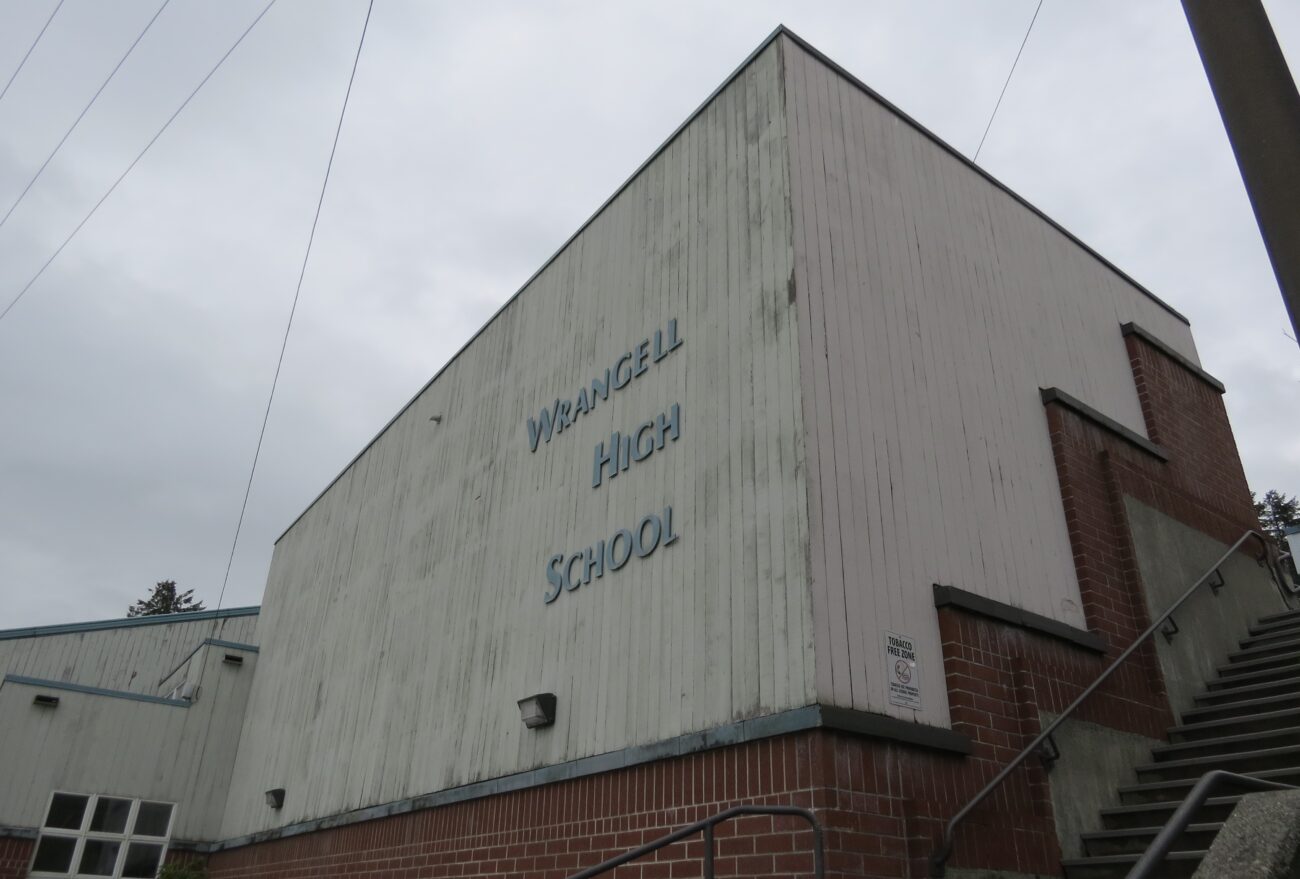
The first draft of Wrangell’s school budget for next year was discussed at last month’s school board meeting. School district officials said they’ll need to pay off some of its deficit with half of its savings account.
Kristi Andrew, the business manager of Wrangell schools, presented the budget to the board. She said, ultimately, the budget is shrinking, but this upcoming year looks ok.
“At this time we’re not anticipating any decreases in staffing,” she said. “This budget is a zero budget and we are rolling forward positions as they are in the current fiscal year.”
A zero-based budget means that the school district takes accountability with the funds they have for that certain school year. Andrew said it took several years to get to this point. They carefully planned with the incoming funds they received throughout that time.
Superintendent Bill Burr said that the school district anticipates getting less funding from the state. This is due to a decrease in student population and inflation. For Fiscal Year 2025, they carefully created a budget without considering if the State of Alaska would approve an education funding increase. Governor Mike Dunleavy had vetoed education funding before and he ended up doing it again with the most recent bipartisan educational fund increase proposal, known as Senate Bill 140.
The district has close to $5.2 million in revenue. But they anticipate spending $5.8 million next year, which leaves a $600,000 deficit.
The district has been able to save more in recent years because of a waiver that was given during the pandemic, which allows schools to have more than 10% held in savings. Without the waiver, districts have a 10% limit. The state statute will go back to the limit in June 2025.
Without additional funds, unexpected expenses might not be met
Burr said this will have a big impact in the years to come. It means that if no funds are added throughout the year, the school district could be in big trouble for FY26.
“Right now, we’re anticipating having a fund balance that’s in good shape,” he said. “However, we’re just like a savings account. We’re anticipating having to spend half of our savings next year, just to break even.”
What this means is that if anything unexpected comes up–like major maintenance or an emergency–the school district has to pay for it out of their limited reserve.
Burr said that as long as the schools continue to get support from the city at the maximum contribution, at $862 thousand, and if the federal grants don’t drop off, they’ll be ok.
“If we suffered through another year of flat funding, we would have no reserve because the cost would continue to rise on everything,” he said. “Every time that we’re spending money, it costs more. That’s not uncommon.”
He said the school district can’t operate in a deficit and if they have no reserve, they would have to make cuts.
“Which is not where we want to be,” Burr said. “That’s why it was devastating to have the latest joint session and come up one vote short. To break even in the Wrangell Public Schools for next year, we would need an increase in base student allocation of $1,000.”
He said the $1,000 per student would help the school stay static and they would not need to dip into their reserve. Although the proposed education funding would have been less than $1,000, at $680 per student, Burr said that every bit counts. On the other hand, he said they are most likely going to have to spend out of their reserve savings account next year.
Justifying costs
He said that in order to save money that doesn’t involve personnel actions, they would have to justify costs.
“Let’s make sure that it’s something that we’re using and that it’s a price that we can continue on,” Burr said. “So when something comes and crosses my desk, I ask those questions, primarily, ‘are we using it? Is it is it a value? And let’s see what we have.'”
This includes bringing in outside contracting, such as E-Rate, an affordable Federal information and telecommunications program for schools and libraries. The district brought that in a few years ago.
Burr said the school values art and music and he doesn’t anticipate cutting any classes or staff to save costs.
The second budget draft will be presented at the next school board meeting, on April 15th.
Burr said he hopes to have a joint meeting with the City and Borough of Wrangell before turning in the second draft on May 1.









